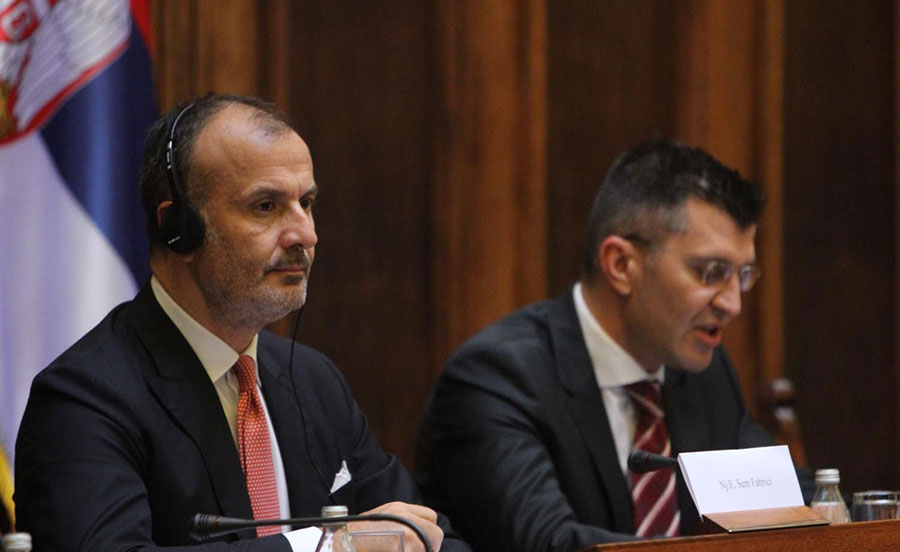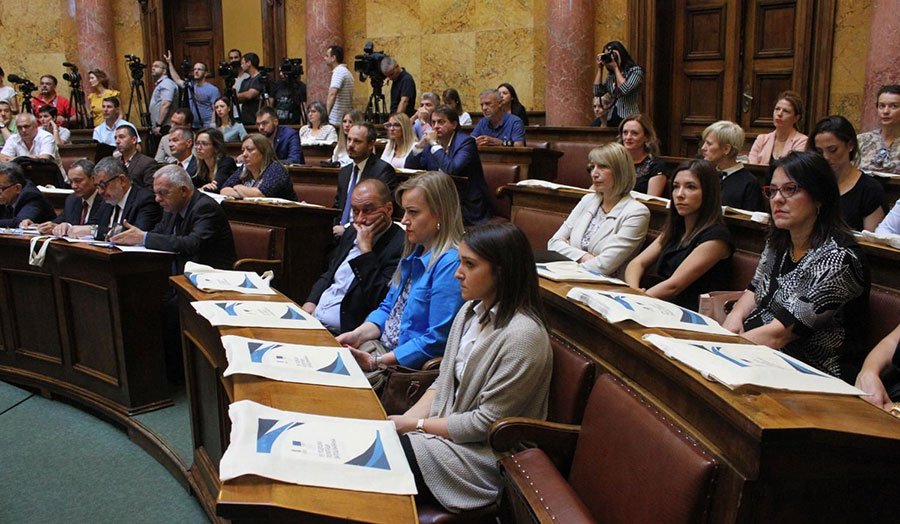The European Union will commit EUR6.3 million to Serbia through two projects aimed at reducing unemployment, the Minister of Labour, Employment, Veteran and Social Affairs Zoran Djordjevic and the Head of the EU Delegation to Serbia Sem Fabrizi announced.
Fabrizi told the press that the EU also funded projects to help Serbia implement active employment policy aimed primarily at harder-to-employ persons.
“Serbian economy is growing. Unemployment is shrinking. However, there is enough space to continue this trend,” Fabrizi said presenting the projects “EU support for the National Employment Service” and “EU support for Employment Policy.”
He said that the projects will help Serbia to further enhance the capacity of the Ministry of Labour and the National Employment Service by equipping them with new and improved active employment policy. The component, he said, is worth EUR1.8 million, whereas another EUR4.5 million is intended for the implementation of those policies.
“There are many people without a job in Serbia, as well as those who lack skills and knowledge that would make their job search easier,” Fabrizi said.
He said that the goal was to engage everyone in the labour market and create solutions that would allow Serbia to respond to labour market needs in the future.
He said that the funding received within the projects would be managed by Serbian institutions, adding that the move was a sign of trust placed by the EU in Serbian institutions.
Minister Djordjevic said that all measures taken by the Government since 2014 were aimed at reducing unemployment and poverty. He also added that some 30 per cent of the unemployed have no qualifications and needed more support to acquire them.
He said the Ministry has taken a series of actions to fix the problem of high unemployment among those without any qualifications on the National Employment Service’s list.
“Unemployment in Serbia is currently being kept at the minimum level. It stands at around 12 per cent; it used to stand at 26. This is a counter reaction of the labour market characterised by a small stagnation, revolving around 12 per cent. I believe that with all additional measure and projects, the unemployment will continue to shrink in 2018 and 2019,” Djordjevic said.





